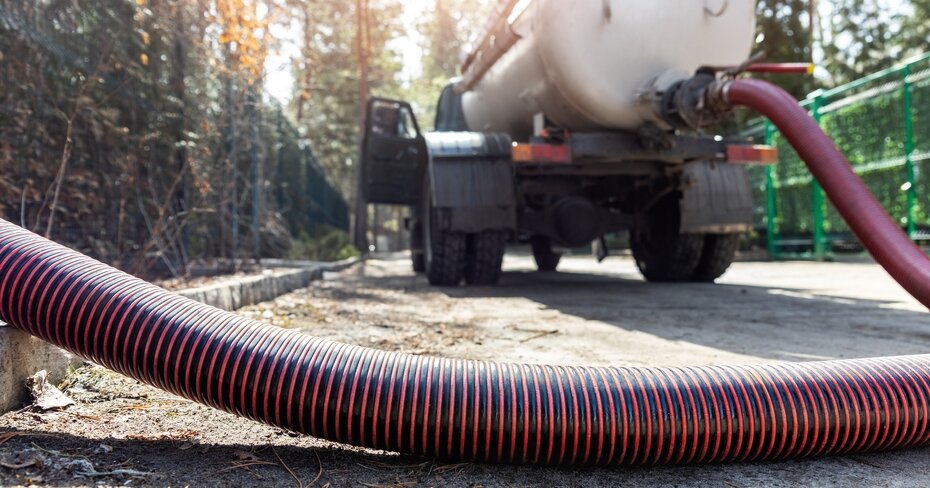Is your septic tank covered by home insurance?
By: Ritika Sharma on May 4, 2023
If you're a homeowner in Ontario you've likely come across septic tanks at some point or the other — especially if you’ve spent much time in the country. Septic tanks are a common way of disposing wastewater in areas where municipal sewer systems aren't available. Unlike conventional plumbing, these underground chambers collect and treat household sewage before releasing it back into the environment.
Does your home insurance policy cover septic tanks?
It depends on several factors, such as the type of damage and what’s included in your home insurance policy.
Generally, septic tanks are covered under the Dwelling Insurance component of a home insurance policy, as they are considered built-in home appliance. Under this standard coverage, you will be protected from both damage to your septic tank and damage from your septic tank.
A septic tank also falls under the category of “other structures,” alongside pools, fences, and other items outside of the home. That means that damage caused by lightning, fire, hail, windstorms, aircraft, explosions, snowfall, and overflowing plumbing, heating, or air conditioning will also be covered.
However, damage caused by a septic tank backup is a different issue.
A sewer backup occurs when wastewater from a city's sewer system backs up into your home through the drains or toilets. Likewise, a septic tank backup occurs when the tank becomes full, and wastewater backs up into your home through the drains or toilets.
As a general rule, neither sewer backups nor septic system backups are covered by standard home insurance policies in Ontario. To get coverage for septic system backups, homeowners are encouraged to add an optional sewer backup endorsement to their policy.
Related: Three home insurance endorsements to consider based on where you live
The X factor: Lack of maintenance
So your standard home insurance will insure some damage to and from your septic tank, and septic system backups are covered by additional sewer backup insurance.
That should cover all your bases, right?
Not so fast, slugger.
Septic tanks must undergo regular maintenance in order to function properly. As time passes, the tank may fill up, causing a back-up. Your insurance policy is unlikely to cover damage caused by negligence or lack of maintenance.
To minimize the damage to your septic tank, make sure you do the following:
- Have your septic tank pumped regularly.
- Avoid flushing non-biodegradable materials down the toilet.
- Use a drain filter to prevent solids from entering the tank.
- Make sure you’re not driving heavy machinery or building structures over your septic tank or pipes
- Get your septic tank inspected every two to five years.
Septic tanks in your vacation home or cottage
The above holds true for any rural homes. But what if your septic tank is in your cottage or second home, which is only occupied for a few months a year?
The insurance coverages for a cottage or a vacation home may differ between policies. The factors that affect your coverage and premium include how often the home is occupied and who has access to the home (just immediate and extended family? Or renters?).
Vacation homes and cottages can be insured either as standalone properties, or as a secondary or seasonal location as part of your home insurance policy.
Just like with a home insurance policy, certain damages are excluded from standard policies. These include septic backup and flooding, fuel oil leaks, earthquakes, and damage to vehicles, campers or trailers, or buildings for business use.
To make sure you’re getting the coverage you need, look over your cottage insurance policy carefully and shop around different rates and policies.
Peace of mind is priceless
The last thing you want is to discover that your septic tank has backed up in the middle of the night, or when you’ve just come in after a long time away — to say nothing of the headache of sifting through your insurance documents to figure out if the damage is even covered.
To save yourself the trouble later, make sure you have the right coverage for your needs. This means understanding the coverage provided by your policy and purchasing the necessary endorsements for your cottage or primary home.
If you're unsure about anything in your policy, it never hurts to speak to your insurance broker for guidance and to compare home insurance quotes to make sure you’re getting the best rate for your policy.
And above all, make sure you’re regularly taking care of your tank! A little maintenance can save you from a nasty, smelly, biohazardous mess down the road.
Save 32% on average on home insurance
Compare 50+ quotes from Canadian providers in 3 minutes.


